Let’s not forget War is A Racket: All Wars Are Bankers Wars.
The War Conspiracy: JFK, 9/11, and the Deep Politics of War
I was massively involved in politics when 9/11 happened. As Bush and his cronies were pushing to go to war with Iraq. I was reading and researching that it was a bad idea and the evidence didn’t match the crime.
In one of our articles, Who Rules America? We hit on “the power structure (Oligarchy) in the United States, arguing that a small, interconnected elite—composed of wealthy individuals, corporate leaders, and policy influencers—dominates the political and economic landscape.”
The Ruling Oligarchy is made up of:
- Power Elite
- Corporate Dominance
- Policy Planning Network
- Social Clubs and Elite Education
- Influence on Government and Media
- Critique of Pluralism
- Social Movements and Change
All seven of these concepts aligned in interests to go to war with Iraq for some type of gain.
In another article, Let the Best Ideas Win In the Public Arena, But Don’t Legislate Bad Ideas Into Law. We talk about the consequences of forcing a bad idea on society. The bad ideas come in the forms of lies, propaganda, misinformation, and indoctrination.
Social Consequences:
- Erosion of Trust
- Suppression of Freedom
- Loss of Morale and Motivation
Economic Consequences:
- Inefficiency and Waste
- Reduced Innovation
- Economic Hardship
Political Consequences:
- Authoritarianism
- Instability and Unrest
- Loss of Legitimacy
Cultural Consequences:
- Cultural Decline
- Stifled Intellectual Growth
Personal Consequences:
- Psychological Impact
- Reduced Quality of Life
“The effects of institutional bad ideas and lies on future generations can be profound and long-lasting, shaping societies in numerous ways.”
- Erosion of Trust:
- Perpetuation of Injustice:
- Distorted Historical Narrative:
- Stifling Innovation and Progress:
- Social and Psychological Impact:
- Undermining Democracy & the Constitutional Republic:
- Moral and Ethical Decay:
- Worldwide Impact:
The instutionalizing of the 9/11 lies on the American people and tge world at large has done exactly what this list describes.
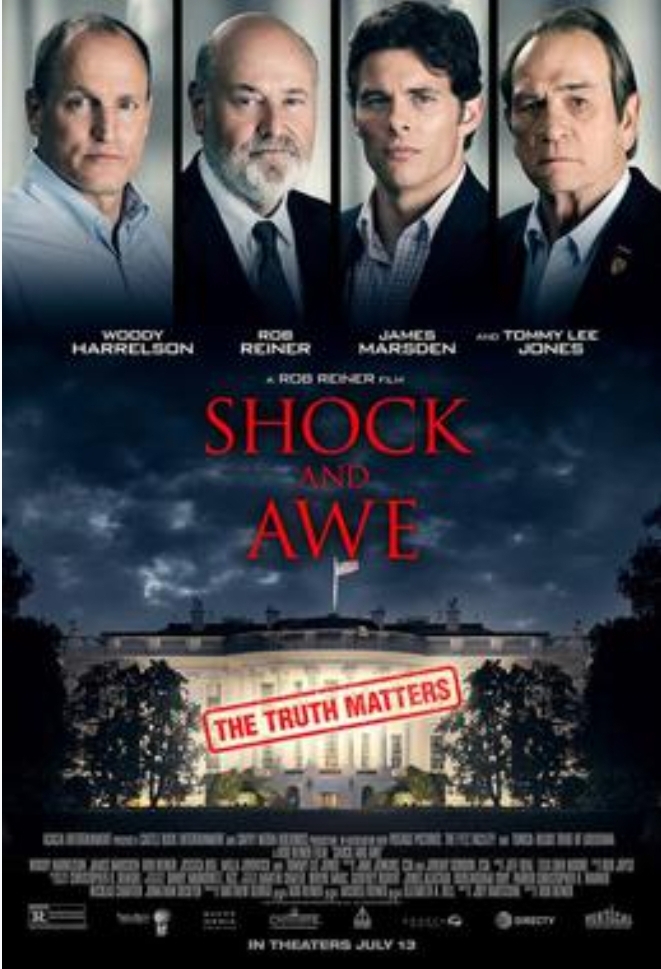
Shock and Awe is a 2017 American political drama film directed by Rob Reiner. The movie tells the story of a group of journalists who were skeptical of the U.S. government’s justification for the Iraq War, particularly the claims about weapons of mass destruction (WMDs) in Iraq. The title refers to the military doctrine of overwhelming force used in the early stages of the Iraq invasion, known as “shock and awe.”
Plot Summary:
The film is set in the early 2000s and follows a group of journalists working for the Knight Ridder newspaper chain, one of the few media outlets that questioned the Bush administration’s rationale for the Iraq War. While much of the mainstream media accepted the government’s claims about Saddam Hussein’s possession of WMDs, these reporters, led by Jonathan Landay (Woody Harrelson) and Warren Strobel (James Marsden), were skeptical and began investigating the administration’s assertions.
The story unfolds as the journalists dig deeper into the intelligence reports and government statements, uncovering inconsistencies and a lack of credible evidence supporting the existence of WMDs in Iraq.
Their reporting, however, faces significant pushback, both from within their news organization and from other media outlets that were more supportive of the war.
Themes and Messages:
- Journalistic Integrity: Shock and Awe highlights the importance of investigative journalism and the role of the press in holding the government accountable, especially in times of war.
- Questioning Authority: The film emphasizes the need to question official narratives and not take government statements at face value, especially when they involve matters as serious as war.
- Media Complicity: The movie critiques the broader media landscape for its failure to challenge the Bush administration’s claims, contributing to the public’s support for the Iraq War.
Historical Context:
- The film is based on true events, with the characters of Jonathan Landay, Warren Strobel, and their editor John Walcott (played by Rob Reiner) being real journalists who played a key role in questioning the government’s justification for the Iraq War.
Legacy:
Shock and Awe serves as a reminder of the critical role that the press plays in democratic republic societies, particularly during times of crisis. The film also highlights the consequences of media complacency and the importance of rigorous, skeptical journalism in the face of government propaganda. While not a major commercial success, it contributes to the ongoing conversation about the Iraq War and the media’s role in shaping public opinion.
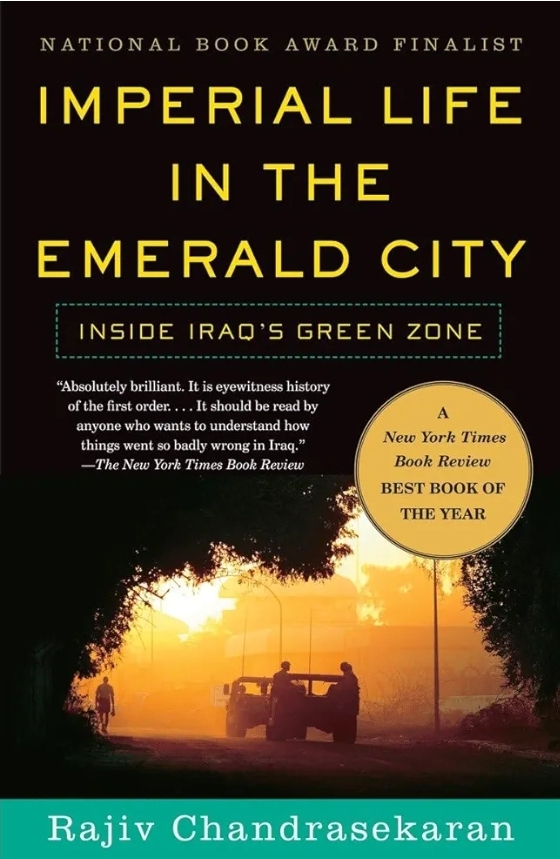
Rajiv Chandrasekaran is an accomplished journalist and author, best known for his detailed coverage of the Iraq War and his critical examination of the U.S. occupation of Iraq. His book “Imperial Life in the Emerald City: Inside Iraq’s Green Zone” offers an insightful, often critical, look at the American administration in Baghdad following the 2003 invasion of Iraq.
Background of the Green Zone:
The Green Zone, officially known as the International Zone, was the heavily fortified district in central Baghdad where the Coalition Provisional Authority (CPA) and other international agencies were headquartered during the U.S. occupation of Iraq. It became a symbol of the disconnect between the U.S. administration and the Iraqi people.
Key Themes and Content of the Book:
1. Isolation and Disconnection:
- The “Emerald City”: Chandrasekaran portrays the Green Zone as a bubble of relative luxury and safety, cut off from the realities of life in the rest of Baghdad. This “Emerald City” was characterized by well-stocked dining facilities, swimming pools, and a sense of normalcy that contrasted starkly with the violence and chaos outside its walls.
- Cultural Misunderstanding: The book highlights the cultural and political disconnect between the American officials and the Iraqi population. Chandrasekaran describes how decisions were made within the Green Zone with little understanding of, or input from, the Iraqi people.
2. Bureaucratic Mismanagement:
- CPA’s Failures: The book is critical of the Coalition Provisional Authority’s administration under L. Paul Bremer. Chandrasekaran details how key positions were often filled based on political loyalty or ideological alignment rather than relevant experience, leading to inefficient and sometimes disastrous policies.
- Key Examples: Chandrasekaran discusses several key decisions, such as the de-Baathification policy, which purged former Baath Party members from government positions, and the disbanding of the Iraqi army, both of which contributed to the destabilization of Iraq and the rise of insurgency.
3. Personal Accounts and Anecdotes:
- First-Hand Observations: Chandrasekaran provides personal accounts and anecdotes from his time in Baghdad, offering a ground-level view of the occupation. These stories underscore the surreal nature of life in the Green Zone and the challenges faced by those trying to govern Iraq from within it.
- Diverse Perspectives: The book includes interviews and perspectives from various individuals, including American officials, contractors, and Iraqis who interacted with the CPA, providing a multifaceted view of the occupation.
4. Failed Reconstruction Efforts:
- Economic and Social Rebuilding: Chandrasekaran covers the numerous failed attempts to rebuild Iraq’s infrastructure and institutions. He discusses how projects were often mismanaged, underfunded, or disconnected from the needs of the Iraqi people, leading to widespread frustration and resentment.
Impact and Reception:
- Critical Acclaim: “Imperial Life in the Emerald City” was widely praised for its detailed reporting, insightful analysis, and vivid portrayal of life in the Green Zone. The book won several prestigious awards and has been regarded as one of the definitive accounts of the U.S. occupation of Iraq.
- Film Adaptation: The book inspired the 2010 film “Green Zone,” directed by Paul Greengrass and starring Matt Damon. Although the film took liberties with the source material, it drew attention to the issues highlighted by Chandrasekaran, particularly the disconnect between the U.S. administration and the situation on the ground in Iraq.
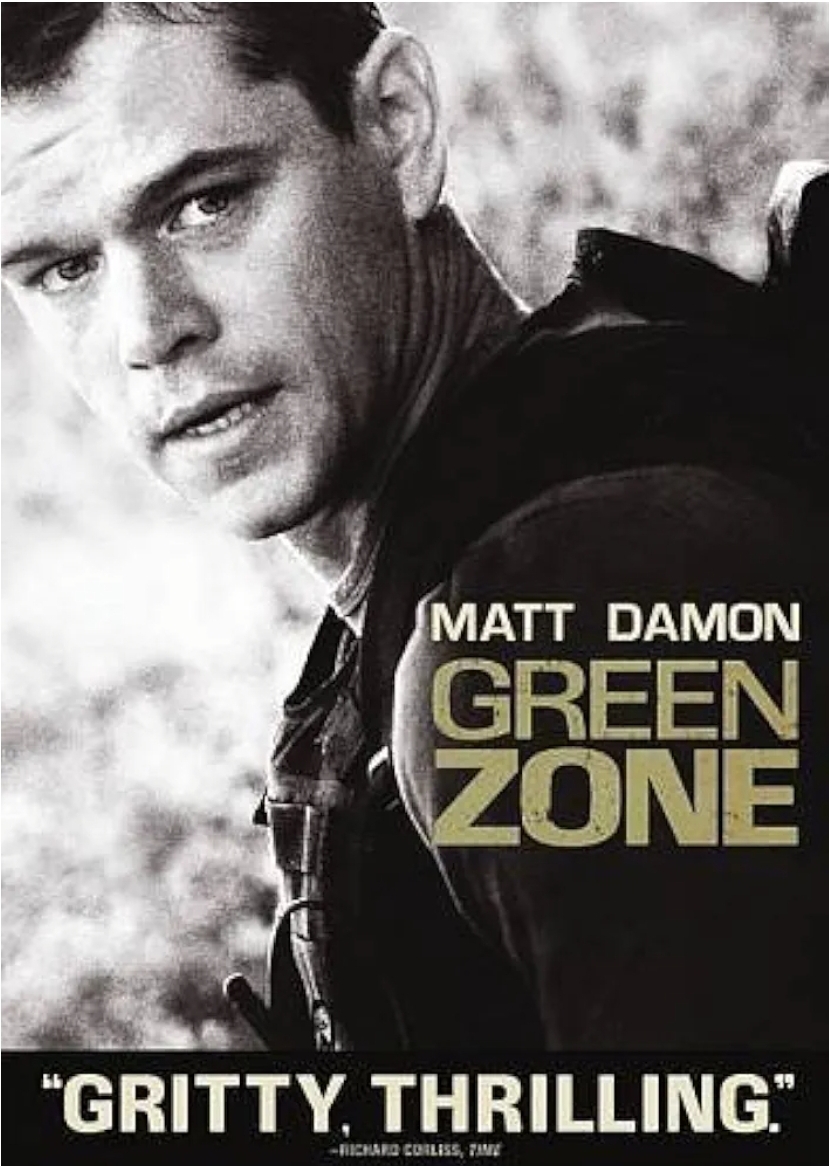
Legacy:
Rajiv Chandrasekaran’s “Imperial Life in the Emerald City” remains an important work for understanding the complexities and failures of the U.S. occupation of Iraq. The book provides a critical lens through which to view the challenges of nation-building, the importance of cultural understanding in foreign policy, and the consequences of bureaucratic mismanagement in conflict zones.
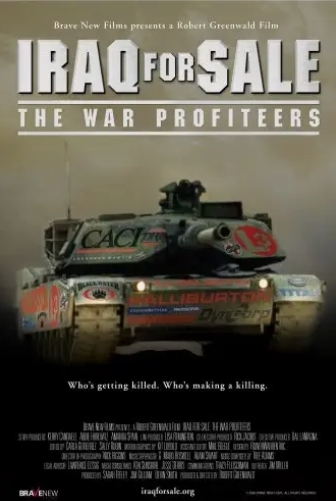
“Iraq for Sale: The War Profiteers” is a 2006 documentary film directed by Robert Greenwald. The film critically examines the role of private corporations in the Iraq War and their influence on U.S. military operations. Here are some key details:
Synopsis:
The documentary focuses on the privatization of military operations in Iraq and highlights the significant role that private companies played in the war. The film argues that these companies, including well-known names like Halliburton, Blackwater, and CACI, exploited the war for enormous profit at the expense of both American soldiers and Iraqi civilians.
Key Themes:
- War Profiteering: The film explores how companies capitalized on the war, often receiving lucrative government contracts without adequate oversight, leading to excessive profits.
- Impact on Soldiers: It also delves into the consequences for U.S. soldiers, including inadequate support, insufficient resources, and instances of poor management by these private contractors.
- Lack of Accountability: The documentary highlights the lack of accountability and transparency in the dealings of these companies, leading to inefficiencies, corruption, and in some cases, human rights abuses.
- Human Cost: The film brings to light the human cost of the war for both American service members and Iraqi civilians, underscoring the moral and ethical implications of war profiteering.
Impact:
The film is part of Robert Greenwald’s series of politically focused documentaries and contributed to the broader debate on the Iraq War, particularly in how the war was conducted and the role of private enterprise in military operations.
The documentary is still relevant as it raises important questions about the privatization of military services and the implications of this trend for future conflicts.
“The famous Lucius Cassius, whom the Roman people used to regard as a very honest and wise judge, was in the habit of asking, time and again, ‘To whose benefit?” — Marcus Tullius Cicero

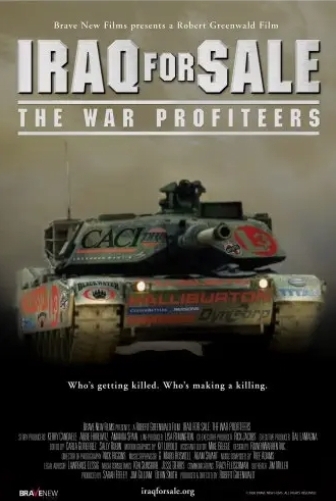



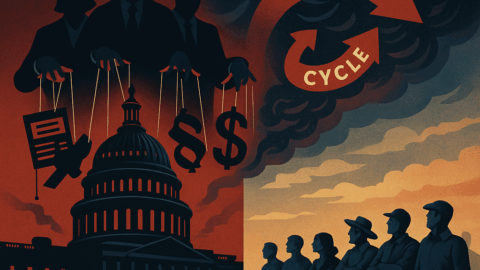
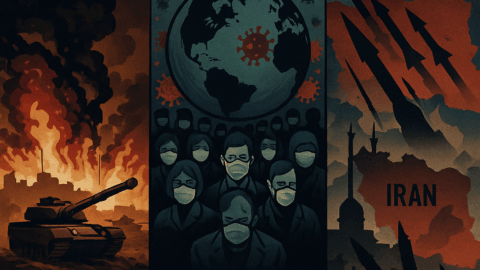
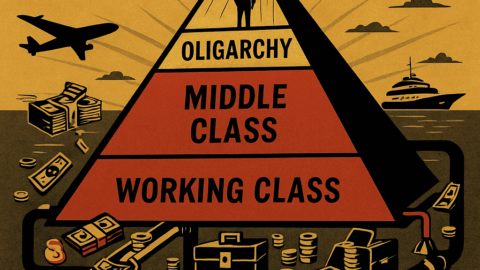
One Response
Thank you for sharing your insights. I find this very valuable.